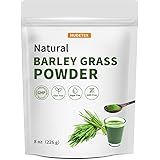Understanding Cortisol: The Hidden Factor in Persistent Weight Gain
Many individuals find themselves on a perplexing journey toward weight management, meticulously tracking calories and engaging in regular exercise, yet the scales stubbornly refuse to budge. The frustration that arises from such diligent efforts, yielding minimal results, is a commonly shared experience. If you have been grappling with unexplained weight gain or a persistent feeling of being “on edge,” the insightful video above explains how cortisol could be a significant underlying factor in these challenges, offering a fresh perspective beyond conventional approaches.
This powerful stress hormone, often misunderstood, plays a much more intricate role in metabolic health than is typically acknowledged. It becomes increasingly important to recognize that weight loss is not merely a simplistic equation of “calories in versus calories out,” especially as the body undergoes natural changes throughout the decades. A deeper understanding of cortisol levels and their impact on various metabolic processes is therefore essential for achieving sustainable well-being and effective weight management.
Cortisol’s Central Role in Metabolic Engines
The human body operates through an intricate network of metabolic engines, each influencing the overall capacity to maintain a healthy weight and optimal energy levels. The foods consumed, lifestyle choices made, and daily behaviors adopted all contribute significantly to metabolic health. However, when consistent efforts to eat well and exercise appropriately do not produce the desired outcomes, it often indicates that one or more of these crucial metabolic engines are not functioning optimally.
Cortisol, a primary stress hormone produced by the adrenal glands, acts as a critical through-line connecting and influencing these various metabolic systems. When the hypothalamus signals a “fight or flight” response, the pituitary gland then directs the adrenal glands to secrete cortisol. This cascade is designed for acute stress, preparing the body for immediate action. However, chronic elevation of cortisol can disrupt numerous physiological processes, effectively creating a substantial “weight loss block” by interfering with metabolism and energy regulation.
The Gut-Cortisol Connection: A Bidirectional Relationship
One fundamental metabolic engine involves the gut, which is responsible for the digestion, absorption, and elimination of nutrients. A healthy gut ensures that food is processed efficiently, nutrient uptake is maximized, and waste is moved through the body effectively. When gut health is compromised, digestion becomes sluggish, nutrient absorption decreases, and chronic inflammation can ensue. This impaired gut function establishes a significant impediment to weight loss efforts.
Intriguingly, an unhealthy gut can also lead to an undesirable spike in cortisol levels, indicating that the body is under physiological stress. This relationship is notably bidirectional: elevated stress hormones, in turn, can negatively impact gut health, creating a vicious cycle. Prolonged periods of stress have been shown to alter the gut microbiome and compromise the intestinal barrier, often referred to as “leaky gut,” further exacerbating inflammation and metabolic dysfunction. Addressing gut health is therefore an essential component of managing cortisol and fostering a healthier metabolic environment.
Hormonal Balance and Cortisol Fluctuations
The body’s hormonal engine is another critical component in the complex machinery of metabolism. When hormones are out of balance, the metabolic rate can become sluggish, making it considerably more challenging to build and maintain muscle mass. This phenomenon is frequently observed during life transitions such as perimenopause, menopause, and andropause, where declines in hormones like estrogen, progesterone, and testosterone lead to reduced muscle mass and a diminished capacity to burn energy efficiently at rest.
During these hormonal shifts, cortisol levels also tend to fluctuate significantly. Both excessively high and low cortisol can contribute to weight gain, demonstrating the delicate balance required for optimal metabolic function. Chronic stress, a universal disruptor across metabolic engines, frequently leads to wider hormone disruption. This disruption subsequently influences cortisol regulation, reinforcing the interconnectedness of the body’s various systems. Maintaining balanced hormone levels is thus crucial for effective cortisol management and successful weight control.
Inflammation and Nutrient Load: Fueling Cortisol Levels
Chronic inflammation within the body serves as yet another metabolic engine that directly impacts cortisol levels and overall weight management. When systemic inflammation is high, cortisol levels tend to elevate as the body attempts to mitigate the inflammatory response. This sustained elevation of cortisol then becomes a persistent barrier to weight loss, signaling to the body to store fat, particularly in the abdominal region.
Similarly, the quality of one’s nutrient intake plays a pivotal role in regulating inflammation and cortisol. Consuming a diet rich in highly processed, low-quality foods often leads to nutrient deficiencies and an increased burden of oxidative stress. Oxidative stress, characterized by an imbalance between free radicals and antioxidants, can trigger an inflammatory response that, in turn, drives cortisol levels higher. Ensuring adequate intake of essential nutrients and antioxidants is paramount for reducing inflammation and supporting balanced cortisol function.
Natural Strategies for Cortisol Detox and Weight Management
Given cortisol’s profound influence on metabolic health and weight regulation, it becomes clear that actively managing this stress hormone is a crucial step in any weight loss journey. Thankfully, several natural and universal strategies can be implemented to help detox cortisol and restore balance within the body’s metabolic engines. These approaches often complement each other, offering a holistic pathway toward improved well-being.
Dietary Adjustments: Eating to Calm Cortisol
The initial phase of a cortisol detox frequently involves careful consideration of dietary choices. Certain foods are known to spike cortisol levels, exacerbating stress responses and hindering metabolic function. It is generally advisable to remove or significantly reduce the intake of high-sugar foods, such as sugary drinks, desserts, and refined carbohydrates, as these can trigger rapid blood sugar fluctuations that elevate cortisol. Highly processed foods, often laden with unhealthy fats and artificial ingredients, also contribute to systemic inflammation and cortisol imbalances. Additionally, excessive alcohol consumption and high amounts of caffeine are stimulants that can keep cortisol levels artificially elevated, disrupting the body’s natural rhythms.
Conversely, incorporating foods that actively help to calm cortisol levels is highly beneficial. Consistently consuming adequate protein throughout the day supports stable blood sugar and provides the building blocks for hormones and neurotransmitters. Increasing healthy fats, found in sources like avocados, nuts, seeds, and fatty fish, also aids in hormone production and reduces inflammation. Furthermore, foods rich in antioxidants, such as brightly colored berries and leafy green vegetables, combat oxidative stress, protect cellular health, and enhance the body’s capacity to manage stress, thereby improving cortisol regulation.
Exercise: Finding the Right Balance for Stress
Exercise is undoubtedly beneficial for overall health, yet the type and intensity of physical activity must be carefully considered when managing high cortisol states. Many individuals, in an earnest attempt to lose weight, may inadvertently over-exercise, particularly with high-intensity interval training (HIIT) or prolonged heavy cardio, when their bodies are already under significant stress. This approach can unfortunately worsen cortisol levels, as intense exercise is perceived by the body as another form of stress, triggering an outpouring of adrenaline and further shutting down metabolic engines.
When experiencing elevated stress or high cortisol levels—often indicated by poor sleep quality or a lower Heart Rate Variability (HRV) reading, if tracked on devices like an Oura Ring or Fitbit, potentially falling under 40—it is important to prioritize gentle and balancing activities. Engaging in practices such as yoga, leisurely walking, swimming, or Pilates can effectively support the body without creating additional physiological stress. These gentler forms of exercise encourage the parasympathetic nervous system, promoting relaxation and aiding in the reduction of cortisol.
Sleep Optimization: Resetting the Body’s Rhythms
Quality sleep is an indispensable component for toning down and rebalancing cortisol levels within the body. Ancient wisdom, as exemplified by traditional Chinese medicine, emphasizes the importance of sleeping between 11 p.m. and 5 a.m. to allow for essential bodily reset processes. Both falling asleep and staying asleep are critical for the body to manage stress effectively and increase one’s resilience to daily pressures.
Difficulties with falling asleep can sometimes be alleviated with natural aids such as melatonin or magnesium, which promote relaxation. For those struggling to stay asleep, adaptogens like Magnolia bark or other cortisol-managing formulations containing ingredients like GABA may be beneficial. If sleep disturbances persist, a review of hormone levels is often warranted, as imbalances can significantly impair the body’s capacity for restful sleep. Furthermore, minimizing blue light exposure from electronic devices, especially in the hours before bed, is crucial. Keeping phones at least six feet away and turning off TVs or other screens in the bedroom helps prevent blue light from suppressing melatonin production by the pineal gland. This simple but powerful adjustment enables the body to transition into a deeper sleep state and support healthy HRV numbers.
Setting Boundaries and Practicing Mindfulness
The final, yet equally crucial, strategy for a cortisol detox involves creating intentional boundaries within daily life and actively engaging in stress-reducing practices. Incorporating a dedicated period of 10 to 20 minutes each day for activities like meditation, journaling, spending quiet time in nature, or simply soaking up some natural sunlight can profoundly help in balancing and reducing cortisol. These practices activate the body’s relaxation response, counteracting the effects of chronic stress.
Weekly activities such as yoga classes, acupuncture sessions, or therapeutic massages also contribute significantly to cortisol reduction by promoting deep relaxation and releasing physical tension. On a broader scale, planning monthly or quarterly retreats, vacations, or weekend getaways provides an essential opportunity to step away from routine stressors. This deliberate disengagement allows the mind and body to truly relax, leaving behind the pressures of work or home. Through these varied approaches, cortisol levels can be effectively managed, ultimately removing a significant block from your weight loss journey and fostering a greater sense of overall well-being.











